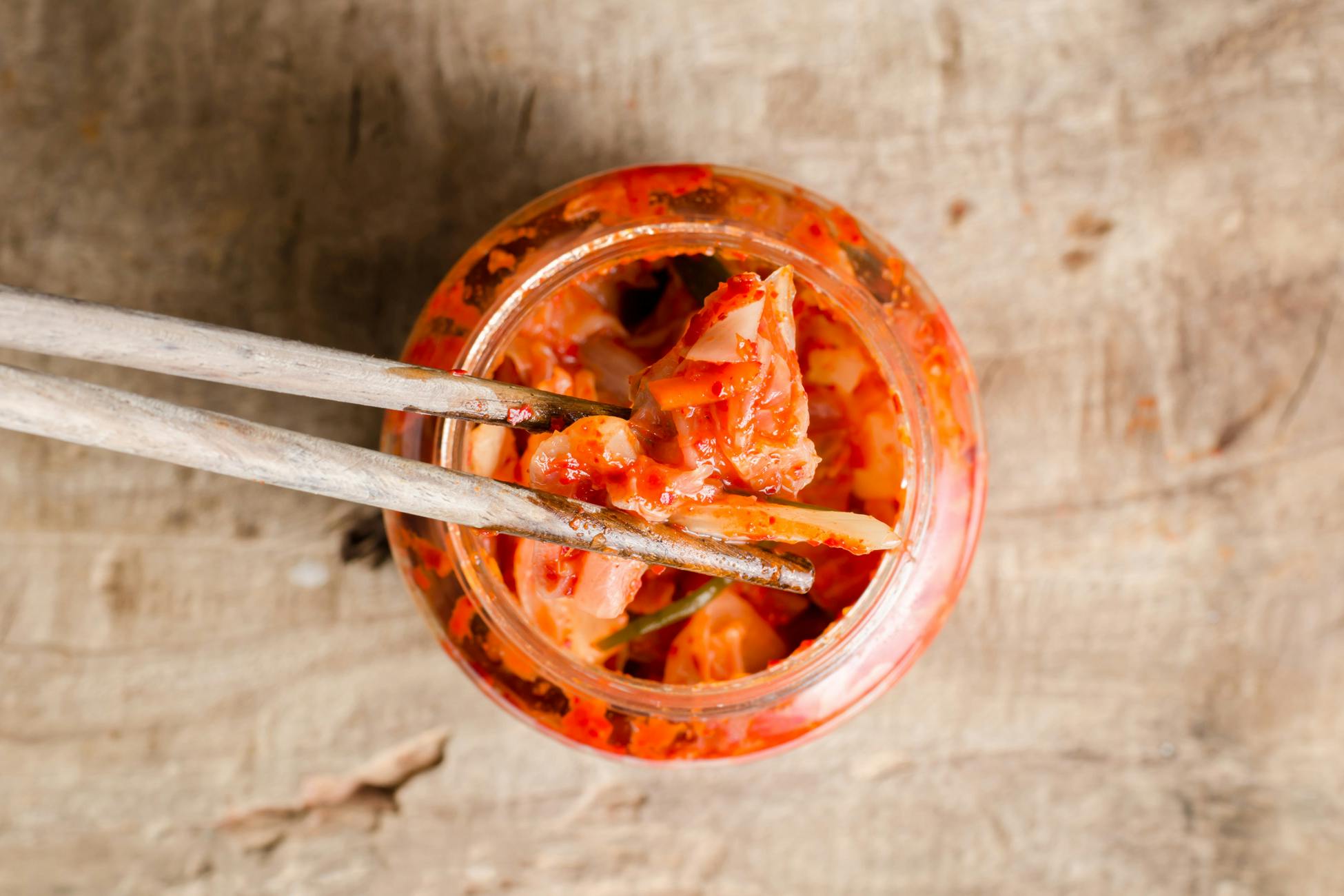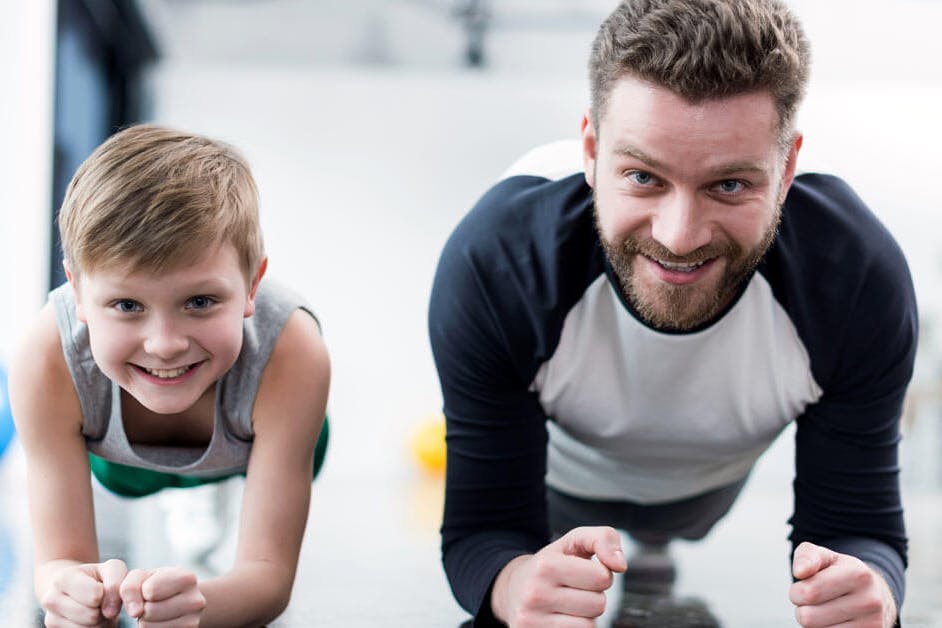Natural Ways to Stay Healthy
Don't let social distancing turn you into a couch potato. Actively boost your immune system naturally, from the comfort of your own home.

The structure of daily life has changed in ways we never could have predicted. It’s likely you’re among the thousands of households throughout the county who are sheltering in place. We know this ‘new normal’ can be overwhelming and stressful.
It’s not uncommon that coping with quarantine is fraught with binge-watching sitcoms and panic baking. While a cookie here or there and a few extra minutes lounging are certainly okay — prolonging this behavior doesn’t promote the mental and physical health you need to stay safe during the age of COVID.
We’ve put together the following tips for how to stay healthy at home. This is not a replacement for the CDC’s recommendations for social distancing. Please reference the CDC’s website for any questions about how to treat COVID-19. Additionally, please follow your state’s stay-at-home orders. California residents can find the most up-to-date information about California’s stay-at-home orders here.
Popular Health Tips
5 Ways to Stay Healthy Physically and Mentally while Sheltering in Place
1. Make a Full Night’s Rest a Priority

Sleep is one of the best ways to boost your immune system and avoid getting sick.
Researchers from the University of San Francisco, Carnegie Mellon University, and University of Pittsburgh Medical Center studied how sleep affects the body’s ability to stay healthy. The results were not surprising. After exposing 164 healthy men and women to the common cold, they found when you sleep more, you sneeze less.
More explicitly, the study revealed those who sleep six hours a night (or less) were four times more likely to catch a cold when exposed to the virus.
Why does sleep play an essential role in the efficiency of your immune system? Because sleep is when your body’s organs – particularly your brain – are able to repair and reorganize their cells.
Van Savage from Harvard Medical School and Geoffrey West from Santa Fe Institute in New Mexico findings suggest the most critical of repairs to your brain happen while you’re asleep.
The brain controls your body’s functions. These include everything from reading and urinating to cell reproduction and appetite control. When your brain isn’t operating at its peak, it takes longer to process each function. This can make it take longer to do a variety of necessary things like heal and fight off a virus (aka the flu or COVID-19).
Long story short – if you want to stay healthy – get some sleep.
How to Get a Good Night’s Sleep
- Establish a Routine – Set a bedtime for yourself and stick to it. We’re creatures of habit. The more consistent you can make your routine, the easier it will be for your body to naturally go to sleep.
- Turn off the Lights – We’re not just talking about your bedside lamp. We’re talking everything. The T.V. The nightlight. The glow from your digital clock. Turn them all off. Any light can make it difficult to fall asleep and stay asleep. Obviously, you don’t want to unplug your alarm clock, but consider covering it with a dark cloth to block the light. It’s also wise to invest in blackout curtains to keep any daylight or ambient street light from interrupting your sleep schedule.
- Wear Socks – In 1999, a Swiss study revealed those who went to bed with warm hands and feet were able to fall asleep more quickly and stay asleep.
- Skip the Nightcap – Sure, a drink before bed might help you unwind and fall asleep more quickly. Unfortunately, that sleep is likely to be less restful. This is because alcohol is a stimulant.
- Turn on a White Noise Machine – Noise can be a huge sleep thief. Unfortunately, noise is often out of your control. A white noise machine can help you combat unwanted sounds from keeping you awake.
2. Drink WAY More Water Than You Think You Need

Even the slightest level of dehydration can significantly impact your immune system's response.
When it comes to the question of how to keep your immune system at its optimal level, H2O is always a good way to go. While most of us know we should drink water, the vast majority of us don’t. According to CBS, “75 percent of Americans may be functioning in a chronic state of dehydration.”
This can lead to a myriad of health-related issues including weight gain, joint pain, and immune deficiency. A 2005 study published in the National Center for Biotechnology Information also found that staying hydrated can help prevent various medical conditions, including kidney stones and hypertension. Generally, it’s recommended the average adult drink eight to ten 8-ounce glasses of water daily.
How to Drink More Water
- Infuse It – Finding plain water plain boring? Give it a natural, healthy flavor punch. Infuse your water with fruits and herbs to turn your everyday necessity into a treat.
- Always Carry a Water Bottle – The easier it is to access water, the more likely you are to drink it.
- Drink a Glass After Your Bathroom Break – Took a trip to the loo? Drink a glass of water. Making this a regular routine can help you increase your daily intake and stay hydrated.
3. Eat a Vitamin-Rich Diet

Kimchi is a probiotic-rich food that can help boost your immune system.
Your body is a machine. The better the fuel you give it, the better it will perform — physically and emotionally. As Uma Naidoo, MD explains in her article ‘Eating during COVID-19: Improve your mood and lower stress,’ published on the Harvard Health Blog:
If you’re already feeling blue, the quick fix of cookies or cake will ultimately make you feel worse. Processed foods and shelf-stable items like baked goods contain a lot of simple carbohydrates that create a yo-yo effect on our blood sugar, which can drive anxiety and worsen mood.
Rather, the best way to help you feel better is to each a vitamin-rich diet. This helps you give your body the key nutrients you need to operate at your peak. Try and make your plate as colorful as possible. Load it with fruits and vegetables.
During the fall, pomegranates and sweet potatoes offer a great source of Vitamin C. Cauliflower, kale and Brussel sprouts are also loaded with vitamins, fiber and minerals your body needs. Look to nuts and avocado for a healthy source of fat.
The key is to avoid the dense foods that weigh you down (like chicken wings and pastries) and focus on the healthy foods which boost your body’s immune system.
Immune Boosting Foods
- Citrus fruits, tomatoes, strawberries and bell peppers are all foods high in vitamin C, which research shows can help boost the immune system.
- Dark chocolate, avocados, whole grains and fatty fish are all foods rich in magnesium. Magnesium has been shown to support your immune system, promote calmness, and reduce anxiety.
- Ginger, turmeric, and garlic are all spices that bring bold flavors to your meals while also boosting your immune system. Loaded with anti-inflammatory properties, these can help your body’s systems keep running smoothly.
- Cashews, liver, egg yolks, beef, oysters, clams, and mussels are all foods rich in zinc, an element that has been shown to have virus-fighting effects.
- Sauerkraut, miso, pickles, kimchi, and yogurt are all probiotic-rich foods. Research shows probiotics enhance the immune system’s response to viruses, helping you fight off and recover from an illness faster.
4. Establish a Routine and Stick to It

While your routine undoubtedly looks different than it did before COVID, establishing one and sticking to it can help provide a sense of normalcy and predictability, promoting your overall health.
Humans thrive on routine. Predictability has been shown to promote exceptional performance — a fact which Sarah Green Carmichael uncovers in her Harvard Business Review article, ‘The Daily Routines of Geniuses.’
Carmichael noticed:
Several common elements in the lives of the healthier geniuses (the ones who relied more on discipline than on, say, booze and Benzedrine) that allowed them to pursue the luxury of a productivity-enhancing routine.
Children, especially, need routines to thrive. The 2010 study, ‘Family Routine Moderates the Relation Between Child Impulsivity and Oppositional Defiant Disorder Symptoms’ published in the Journal of Abnormal Child Psychology explored the importance of family routines. It found that predictable routines help moderate impulsiveness and oppositional symptoms in children.
How to Establish a Routine at Home
While your routine undoubtedly looks different than it did before COVID, take a moment to consider what routine would work for you now. Establish set times for:
- Meals
- Work
- Sleep
- Play
- Physical Activity
By giving yourself clear parameters for when you’re going to do different tasks, you give yourself the freedom to fully focus on each thing. You’ll likely find your productivity increases. And, this can be an excellent way to establish clear boundaries for your kids.
If your kids can trust that there will be a time for them, when you tell them it’s time for work, they can honor those boundaries.
5. Move Your Body

Exercise helps boost your immune system and your mood. It can even be a really good way to spend quality time with family members while you're home together.
An observational study published in The Lancet Psychiatry in 2018 found people who exercise have 1.5 fewer days of poor mental health compared to those who don’t exercise. Furthermore, a recent article published in the Journal of Sport and Health Science shows a compelling link between physical activity and the body’s immune system.
In short, working out can help you be happier and physically more capable of warding off illness.
8 Ways to Exercise During COVID
- Go for a walk or run
- Take a yoga class online
- Have a dance party
- Do a bodyweight circuit
- Clean your house (this is a great way to kill two birds with one stone)
- Yardwork (mow the lawn, weed, plant a tree, install a dripline watering system)
- Finally use the exercise equipment your bought, but never use
- Stack your Amazon delivery boxes together to create a step






